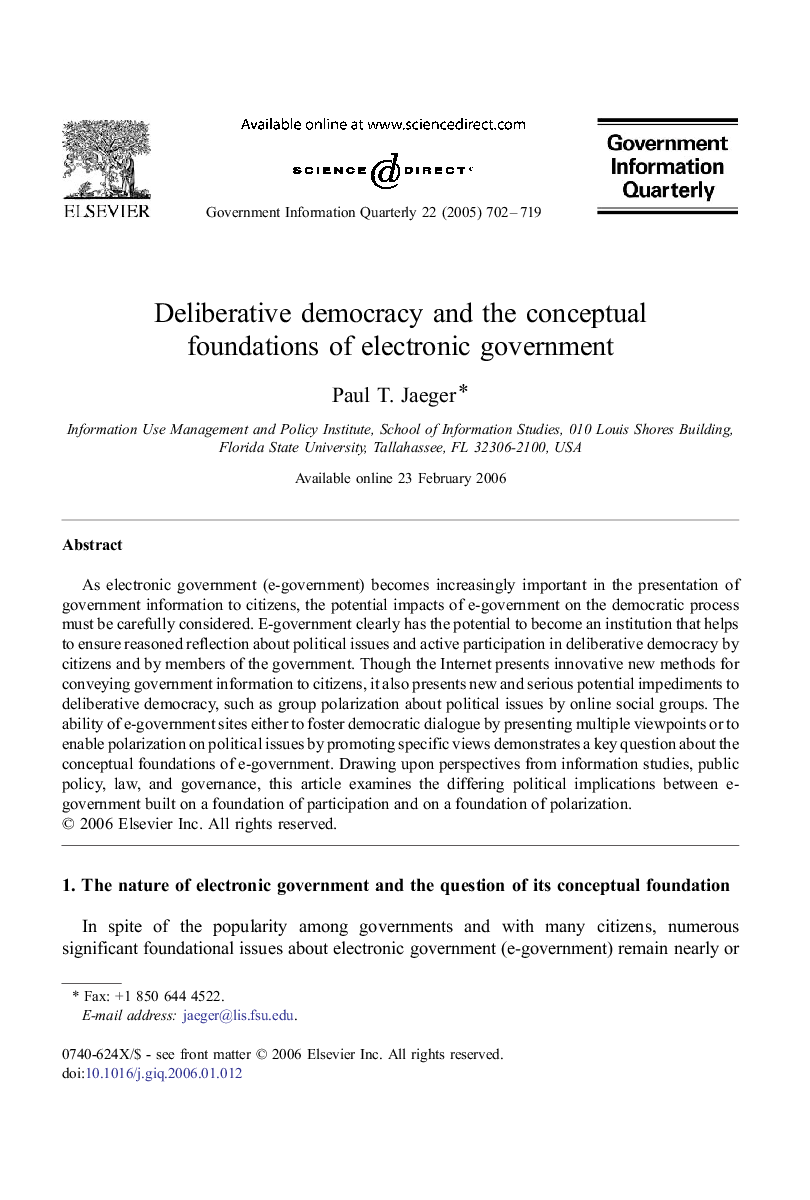| Article ID | Journal | Published Year | Pages | File Type |
|---|---|---|---|---|
| 10495728 | Government Information Quarterly | 2005 | 18 Pages |
Abstract
As electronic government (e-government) becomes increasingly important in the presentation of government information to citizens, the potential impacts of e-government on the democratic process must be carefully considered. E-government clearly has the potential to become an institution that helps to ensure reasoned reflection about political issues and active participation in deliberative democracy by citizens and by members of the government. Though the Internet presents innovative new methods for conveying government information to citizens, it also presents new and serious potential impediments to deliberative democracy, such as group polarization about political issues by online social groups. The ability of e-government sites either to foster democratic dialogue by presenting multiple viewpoints or to enable polarization on political issues by promoting specific views demonstrates a key question about the conceptual foundations of e-government. Drawing upon perspectives from information studies, public policy, law, and governance, this article examines the differing political implications between e-government built on a foundation of participation and on a foundation of polarization.
Related Topics
Social Sciences and Humanities
Business, Management and Accounting
Business, Management and Accounting (General)
Authors
Paul T. Jaeger,
